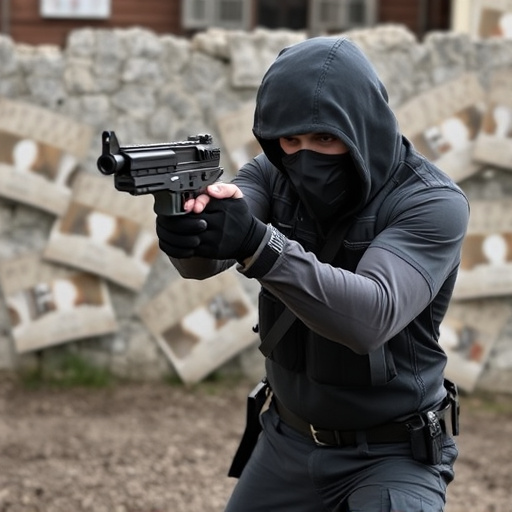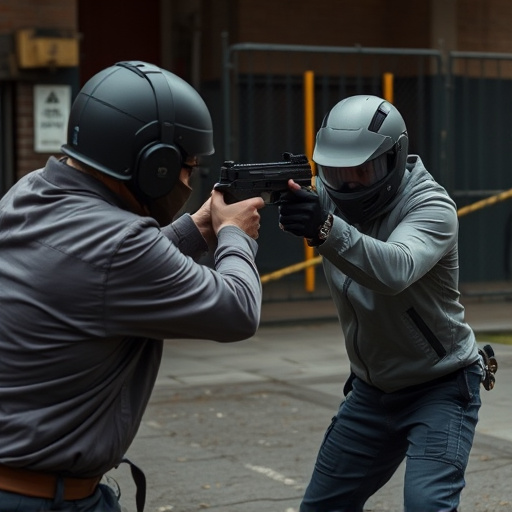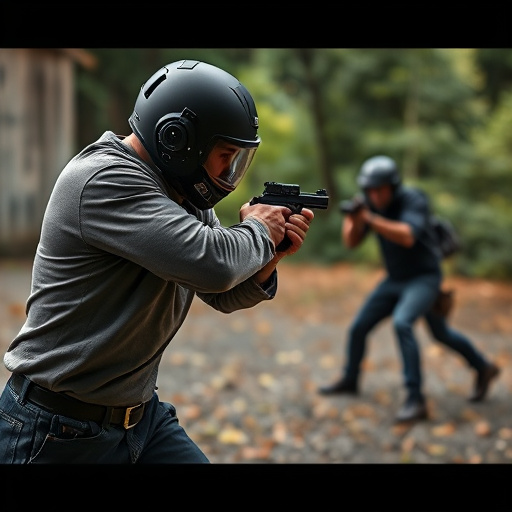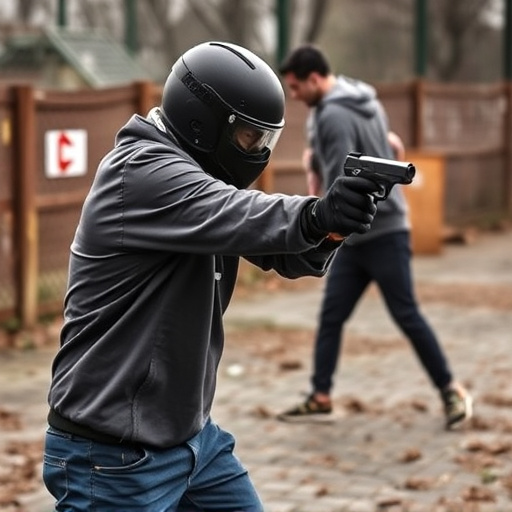State laws vastly differ regarding stun guns, making it crucial to research local regulations before buying. When considering what to look for when buying stun guns, understand age limits, permit needs, and storage rules vary widely between states. Staying informed ensures legal compliance, safe usage, and adherence to power output, size, and brand restrictions.
In today’s unpredictable world, personal safety is paramount. Stun guns offer a powerful self-defense tool, but navigating their legal restrictions can be a complex web. This comprehensive guide breaks down stun gun legality state by state, equipping you with the knowledge to make informed decisions. From understanding specific rules to exploring exceptions and buying best practices, discover what to look for when purchasing a stun gun to ensure compliance and peace of mind.
- Stun Gun Legality: State-by-State Overview
- Understanding Restrictions: Where They Stand
- What to Know Before Purchasing
- Legal Requirements for Carry and Use
- Exploring Exceptions and Exemptions
- Buying Guide: Ensuring Compliance
Stun Gun Legality: State-by-State Overview

The legality of stun guns varies significantly from state to state in the US, making it crucial for potential buyers to understand the regulations before making a purchase. When considering what to look for when buying stun guns, the first step is to research your state’s specific laws. Some states allow stun guns without a permit, while others require registration or licensing. Still, others have strict restrictions on who can own and carry them.
Understanding these legal restrictions is essential as it determines where you can use the device, how you can transport it, and even if it’s legal to possess at all. Each state has its own set of rules regarding stun guns, so buyers should stay informed about their rights and responsibilities. This knowledge will ensure a safe and lawful acquisition and usage of the device.
Understanding Restrictions: Where They Stand

When considering purchasing a stun gun, understanding the legal landscape across different states is paramount. Each state in the US has its own set of regulations regarding stun guns, with some offering more freedom while others impose stringent restrictions. The key lies in what to look for when buying stun guns—specifically, researching local laws and ensuring compliance before making a purchase.
For instance, some states classify stun guns as weapons and subject them to similar regulations as firearms. This may include age restrictions, background checks, and storage requirements. Conversely, other states have less stringent rules, treating stun guns as self-defense tools with fewer legal barriers. Understanding these variations is crucial for responsible ownership and avoiding legal complications.
What to Know Before Purchasing

Before purchasing a stun gun, it’s crucial to understand the legal landscape in your state. Stun guns, also known as electronic control devices (ECDs), are subject to varying restrictions and regulations across the United States. What to look for when buying stun guns involves checking local laws to ensure compliance. Each state has its own set of rules regarding who can own a stun gun, where they can be carried, and how they can be used.
Some states allow stun guns without a permit, while others require registration or licensing. Certain locations also have restrictions on the power output allowed in stun devices. It’s essential to research these laws thoroughly, as breaking them can result in fines or legal repercussions. Additionally, consider purchasing from reputable sellers who are knowledgeable about the legal requirements and can guide you in making an informed decision that adheres to your state’s regulations.
Legal Requirements for Carry and Use

When considering what to look for when buying stun guns, understanding the legal requirements for carry and use is paramount. Each state in the US has its own set of regulations governing stun guns, varying widely in terms of age restrictions, permit requirements, and public places where they can be carried. Some states, like Texas and Florida, allow open carry with minimal restrictions, while others demand permits or limit their use to self-defense within one’s home.
Before purchasing a stun gun, thoroughly research your state’s laws to ensure compliance. Check for any specific provisions regarding power output, size, and brand. Remember that even if you have the legal right to carry a stun gun, certain locations like schools, airports, and government buildings remain off-limits. Always keep yourself informed about local legislation to avoid legal repercussions and make sure your stun gun purchase aligns with what to look for when buying stun guns in terms of both functionality and legality.
Exploring Exceptions and Exemptions

When exploring the legal landscape surrounding stun guns, it’s crucial to understand that while federal laws may provide some guidelines, individual states have the autonomy to set their own regulations. This means what’s permitted in one state might be strictly restricted or even illegal in another. When considering what to look for when buying stun guns, paying close attention to these state-specific rules is essential.
Many states offer exceptions and exemptions that can make stun gun ownership more accessible under certain circumstances. These may include allowing stun guns for self-defense, hunting, or specific professions that require them. Some states also exempt stun guns from the typical background check requirements associated with firearm purchases. Understanding these nuances is vital when navigating the legalities of acquiring a stun gun and ensuring compliance at both federal and state levels.
Buying Guide: Ensuring Compliance

When purchasing a stun gun, it’s crucial to understand and adhere to local laws and regulations to avoid any legal complications. Each state has its own set of rules regarding stun guns, so what to look for when buying stun guns depends heavily on your location. A comprehensive buying guide should include details about the permitted use and carry restrictions in your state.
Ensure you check for features that comply with local laws, such as voltage limitations or specific requirements for registration and licensing. Some states have strict guidelines on where and how stun guns can be carried, so it’s vital to familiarize yourself with these rules before making a purchase. This will guarantee not only your safety but also your compliance with the law.
When considering purchasing a stun gun, it’s crucial to understand the legal landscape in your state. With varying restrictions and exceptions across the US, navigating the rules is essential before making an informed decision. By understanding the specific regulations regarding carry and use, along with what to look for when buying stun guns, you can ensure compliance and make a responsible choice that aligns with local laws. Remember to always prioritize safety and legal adherence when dealing with personal protection devices like stun guns.
